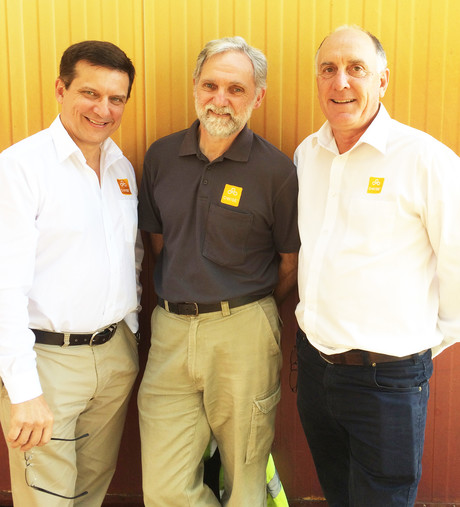Not your average composting company

National Recycling Week (13–19 November) is all about educating consumers about environmentally friendly ways in which to dispose of their waste, instead of depending on landfill. In acknowledgement of this, we’re taking a look at Western Australian composting company C-Wise.
Established in 1996, C-Wise recycles and processes organic waste, though the company won’t call it that. Rather, it sees everything that comes in as a valuable resource.
“For us, recycling is pretty much for anything that doesn’t have a home,” said Dave Cullen, the company’s co-owner.
C-Wise processes a range of recyclable organics, producing a carbon-rich compost that is then added to the soil in order to improve health and productivity. This drive to maximise soil efficiency stems from the belief that there is no other choice if we want to maintain or increase current crop productivity without degrading our water and soil resources.
The process involves a think tank of zoologists, chemists, vets, geneticists and chemical engineers, who try to map out a way to turn the waste into an environmentally friendly product. As noted by Cullen, “A lot of science and rigorous testing goes into our composting so that a new, safe, natural solution can be discovered from waste.”
One of the waste products brought in by companies for recycling is, of all things, dead bodies. Cullen explained, “We often accept pig and chicken carcasses from local businesses and turn them into a horticultural compost blend that can be safely used on farms and in market gardens.”
Other waste products brought in include oil from restaurant grease traps, paints, oil sludge and food remnants from a wide range of different industries — such as livestock, hospitality and mining — that would usually wind up in landfill.
Cullen is extremely passionate about preventing waste to landfill, and believes Australia needs to think about “reducing or even eliminating landfill”.
“If we got rid of it, then people would be forced to find an alternative, viable solution,” he said.
“It’s been restricted or banned in many European countries, such as the Netherlands, France, Sweden and Norway.
“It’s time we start looking down that avenue as well.”
Council recycling service tackles difficult waste disposal
The service is specifically aimed at helping households dispose of items that cannot be placed in...
Greener method recovers critical metals from spent batteries
Researchers have developed a sustainable method to recover high-purity nickel, cobalt, manganese...
National solar panel recycling pilot program welcomed
ACOR has said the national pilot program for solar panel recycling is 'a timely and important...







